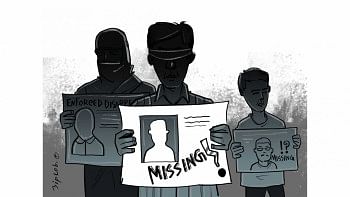Beneficiaries in a crisis

On a hot, scorching day Asif's office air conditioner broke down, with workers doing little and complaining more. Seizing the opportunity, Asif relocated his team to a nearby ice cream parlour. Amid scoops and banter, the team bonded and surprisingly got a lot done. The ice cream shop owner appreciated the extra business, and Asif secured a discount for the group. Meanwhile, the air conditioner was fixed, and everyone returned to the office the next day. But "ice cream meetings" became a regular treat, demonstrating how crises can lead to boon opportunities.
During my tenure as CEO of Robi, the business faced numerous crises, including SIM verification readiness issues and the challenges from the pandemic. One motivational mantra I used for my team was to look for opportunities in each crisis. Initially, the impact was small, but it became a driving force over time. After that, the team consistently delivered exceptional performance during my five years as CEO.
My positive experience during crises stemmed from working for a financially strong company. However, financially weaker businesses often collapse during a crisis due to limited manoeuvring capacity. Historically, the rich-poor gap widens during a crisis, favouring the rich and bankrupting the poor. During the Great Depression, the rich bought assets cheaply while many faced hardships. The 2008 financial crisis and the pandemic saw tech giants and large institutions profit while average citizens suffered. The 1990s Russian and European debt crises also favoured the wealthy through bailouts, exacerbating economic inequalities.
Bangladesh's student-led movement was a call for transformative change. While the country transitions through a wave of change, it is also facing a major national crisis. Cronies and passive supporters of the fallen autocratic regime have suddenly surfaced under a new red banner chanting their support for the revolutionary students when, only a few days ago, they were mourning only the loss of state property and not the deaths of unarmed students! These turncoats that include politicians, bureaucrats, and businessmen—are now out to capitalise on the crisis for their own personal benefits.
But is the hard-fought victory of the student movement enough to achieve a corruption-free, democratic nation envisioned by the students? Unfortunately, the evil forces are still lurking. With their amassed financial and social clout, these opportunists from major political parties are once again raising their ugly heads to undermine the system, threatening to perpetuate the cycle of corruption.
Transforming Bangladesh requires institutional reforms, transparency, and empowering civil society. We need an independent anti-corruption commission to investigate and prosecute without political interference. Public service appointments should be merit-based and free of nepotism. Judicial independence ought to be restored with transparent appointments and tenure protections for judges. Eliminating outdated laws and judicial practices along with corrupt judicial loopholes is crucial.
Regulatory bodies must be empowered with resources and independence to promote transparency through public disclosures, e-governance, and citizen oversight. Press freedom must be protected at all costs and bolster civil society watchdogs. Nationwide campaigns promoting accountability and civic participation must be ongoing.
Economic policies must be inclusive to reduce inequality, support SMEs, and create job opportunities for youth and marginalized communities. Implementing international standards of governance, transparency, and anti-corruption measures is imperative, partnering with global organisations for assistance, if necessary. Property rights must be ensured through stable regulations to build investor confidence while maintaining transparency. Improving forex reserves is one of the top priorities, not to mention controlling inflation, fixing the banking system, disciplining the capital market, and attracting foreign investment for sustainable growth. It is crucial to ensure reforms benefit the poor, and the wealthy contribute by investing and employing and not getting away by evading taxes.
The story of crisis management at the ice cream parlour illustrates how flexibility and creative problem-solving can turn challenges into opportunities. As we stand on the threshold of a new Bangladesh, we can all collaborate to work for a more resilient and dynamic economy that will open new opportunities for all, remove frustrations and disillusionment of the youth, create opportunities and benefits for ordinary citizens, and lastly, embrace the wave of positivity for a more prosperous Bangladesh.
The author is founder and managing director of BuildCon Consultancies Ltd.


 For all latest news, follow The Daily Star's Google News channel.
For all latest news, follow The Daily Star's Google News channel. 



Comments